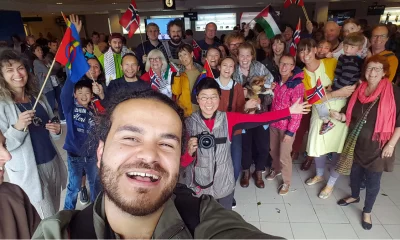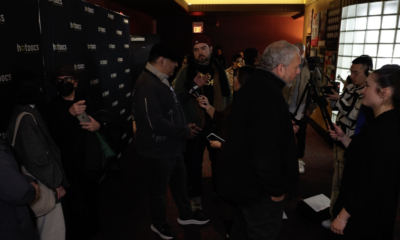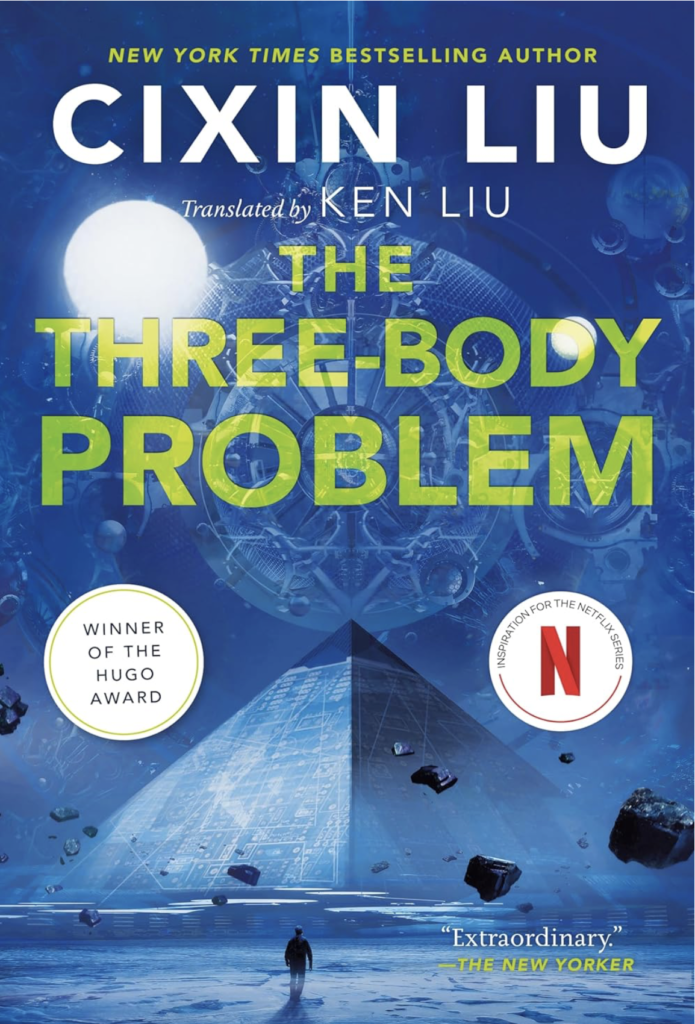DOCUMENTARIES
WAS SHAKESPEARE A FRAUD?
People are still questioning the works of Shakespeare and whether or not it was done himself
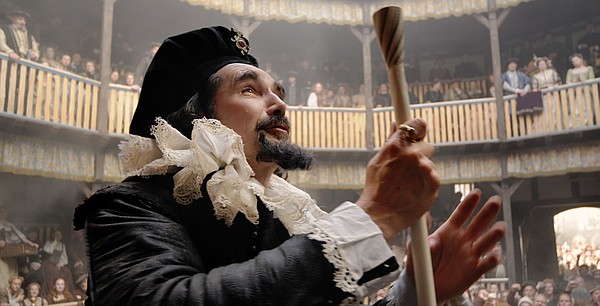

One of the greatest literary mysteries still persists today. The works of William Shakespeare have been questionable by literary experts and iconic authors such as Orson Welles, Charles Dickens and Sigmund Freud. No paper trails were left to prove that he is this iconic author. This brings us to The Shakespeare Authorship Question which has been studied and investigated by directors Laura and Lisa Wilson. This intriguing and compelling subject has these directors examining substantial theories on Shakespeare in their film Last Will.& Testament. With the support of Sir Derek Jacobi, Vanessa Redgrave and Sir Mark Rylance, there is much evidence that supports that others were penning the works of Shakespeare. Let alone the fact that he did not even exist.
How is this possible that such a historical literary icon was not responsible for his own works? It is controversial to the point that Shakespeare had all of us fooled. It’s beyond genius that he was able to write his works and literature without anyone knowing who he was or his actual role in society. The transformation of this literature into classical plays that continue to inspire today is puzzling when thinking of authorship. It begs the question of how has William Shakespeare been able to pull the wool over our eyes for this long? Or was this an alias that was used for other writers so they were not identified? FERNTV spoke with Laura and Lisa Wilson to discuss this literary mystery.
The Interview
FERNTV: What drew you to Shakespeare and this narrative in the film “Last Will. & Testament”?
Lisa: I graduated from the University of Minnesota, where I was first introduced to the Shakespeare Authorship Question. Over the course of several months performing Shakespeare, I began to suspect hidden allusions and double-speak in the plays. This would ignite a passion for the truth about the concealed author. My sister Laura Wilson Matthias attended film school at the Minneapolis College of Art & Design. She later studied Film Theory and Art History at the University of Minnesota. She, too, joined the quest, engaging her passion for the cinematic arts in the pursuit.
In 1997, we co-founded 1604 Productions and set out for Beaufort, SC, to interview author and Oxfordian pioneer Charlton Ogburn. His last interview was twelve hours of recorded footeage. In his honour, we’ve been documenting the Shakespeare Authorship Question ever since. The next decade would include travel to Canada, Italy, Denmark, Germany and the United Kingdom. We were documenting Authorship sites and compiling a multi-media archive of portraits, properties, tombs, monuments, engravings, documents and artifacts.
In 2005, we provided script consulting services to the motion picture ANONYMOUS (Columbia Pictures). In 2010, we established First Folio Pictures with Executive Producer Roland Emmerich and Producers Aaron Boyd & Patrick Prentice. We are bringing two decades of authorship investigation to a worldwide audience. LAST WILL. & TESTAMENT is the product of that partnership and represents our directorial debut. Roland Emmerich’s generosity and genuine commitment to advancing open inquiry into the Shakespeare Question made it all possible. The concern for the truth was the motivation. Whether it turned out to be reassuring or upsetting to our audience. Through his works, Shakespeare wanted to engage us in the Shakespeare Authorship Question. They become his LAST WILL. & TESTAMENT.
The Approach
FERNTV: How were you able to approach this subject on Shakespeare in a documentary format? What was your strategy?
Laura: Our strategy was simple, conduct the best interviews possible with leading scholars on both sides of the debate. Which left it to the audience to draw their own conclusions. The film does not conclude matters for the viewer but presents the consideration of the information. Those who come to the Shakespeare Authorship Question have to decide for themselves if the author matters. We quickly realized that Shakespeare is very much a personal journey for each citizen of the planet.
It’s an unfolding. So as storytellers, we held fast to the facts and engaged the audience on a subtle emotional level. We proceeded with a deeply held conviction. Whoever he/she was, Shakespeare’s posterity confronts the question of his authorship of the canon. Almost as if it was his last play, calling us to look deeper and free his voice. We hope that our film inspires audiences to take a deep dive and question the traditional attribution.
Enhancing the film’s production value was from decades of research assets. This consisted of already in our multi-media archive of portraits, properties, tombs, monuments, engravings, documents, and artifacts. Having unlimited access to the set of Anonymous on the Studio Babelsberg lot in Germany was a luxury. We made full use of it, which gives the film a deep authenticity and visual richness.
Biographies on Shakespeare
FERNTV: What makes the Last Will. and Testament different from all those biographies written on Shakespeare?
Lisa: The orthodox Shakespearean biographies depend on speculation and myth and are devoid of clear documentary support during his lifetime. Our view that the Oxfordian theory rests on solid evidence, mainly circumstantial. Which any good lawyer, detective, or scientist will tell you is often the best and most reliable kind. Last Will. & Testament holds to the facts and exposes the traditional attribution weaknesses, offering more logical and visceral alternatives.
“In addition to the use of the ‘Anonymous’ commercial film scenes for atmosphere, ‘Last Will. & Testament’ produces actual documents to illustrate its arguments. The interviews are convincing. One can literally go back in history and vicariously trace the events surrounding the concealment of the Shakespeare canon’s shadowy author.” – William Ray – Critic
Shakespeare’s Plays
FERNTV: Is it possible that Shakespeare did not want to show face during his plays. Was it because he was afraid it would be too political, controversial or even scandalous? Wouldn’t it be better to remain anonymous?
Laura: Firstly, noblemen in those days could not write fiction under their own names. They were to serve as statesmen or soldiers to the queen and country. Back in Elizabethan England, authors used all sorts of devices to conceal their identities. They could use acronyms, puzzles, acrostics, and they also, of course, used straight-out pseudonyms. Fifty percent of the cases in which the name Shakespeare occurs in the Elizabethan, Jacobean eras. It’s hyphen, shake, hyphen and spear denotes the action of shaking a spear. This is a pseudonym, a pen name.
It’s rarely acknowledged in the context of discussing Shakespeare that torture was actively in use by the Elizabethan state. There was no first amendment, no assumption of freedom of speech. Shakespeare, whoever he was, had political cover at the highest levels of government.
“The fact that Shakespeare seems to be the only Elizabethan dramatist to get away without being imprisoned, branded, mutilated, maybe killed when it comes to Marlowe, defies logic unless we’ve got the wrong guy.“
Michael Delahoyde
We can’t lose sight of this fact, and it is at the core of the Shakespeare Authorship Question. The fact that the Earl of Oxford’s father-in-law was the most powerful man in Elizabethan England points to a solution. “The two men didn’t get on personally or politically – I mean, it’s a classic dual between the poet and the politician or the poet and the propagandist. Suddenly you realize why these works were written.” – Charles Beauclerk, Earl of Burford
Shakespeare in Families
FERNTV: What one thing you found amazing to learn about this narrative of Shakespeare?
Lisa: The profundity of familial connections between Oxford and the dedicatees the First Folio in 1623. They were William Herbert, 3rd Earl of Pembroke and his brother Philip Herbert, Earl of Montgomery were the “incomparable pair of brethren”. William Hebert got engaged to the Earl of Oxford’s second daughter, Bridget de Vere in 1597. Philip Herbert, Earl of Montgomery, married Oxford’s youngest daughter, Susan de Vere, in 1604.
Was the publication of Shakespeare’s First Folio a family affair? The documentary evidence places Edward De Vere, 17th Earl of Oxford, at ground zero of the Elizabethan court. Furthermore, he shepherds the publication and production of the plays in London which began in the 1590s until the death of Queen Elizabeth I in 1603. The evidence has reached a tipping point in favour of Oxford as the author. His soul journey plays out everywhere in the poems and plays attributed to Shakespeare.
No Paper Trail?
Laura: It’s astounding that there is an absence of a paper trail. Not one play, not one poem, not one letter in Shakspere’s own hand was found. No record shows that any William Shakespeare ever received payment or secured patronage for writing. The First Folio testimony does point to Shakspere as the author, but should this be taken at face value? It is very unusual that the identity of such a great writer would depend so heavily on posthumous evidence. The Stratfordian theory depends on speculation and myth and is devoid of clear documentary support during his lifetime. The Oxfordian theory rests on solid evidence, mainly circumstantial.
Shakespeare in Schools
FERNTV: How is Shakespeare a requirement in the education system? When there is a possibility that he does not exist?
Laura: As Diana Price says in the film, “I don’t think anybody questions that a man named William Shaksper was born, and lived, and died in Stratford-on-Avon. That’s not the question. The question is whether he wrote the works that have come down to us under the name William Shakespeare. That is the authorship question. William Shaksper was a commoner, and as a commoner, his life is extraordinarily well-documented, but his life as a writer is not documented, so there’s the blank.”
“if he is the writer that the title pages proclaim him to be, well then he was a professional writer, and we should have no trouble finding evidence of that profession in the paper trail he left behind him during his life. What we have are seventy-odd pieces of documentary evidence, and those include his share-holding in an acting company, his real-estate purchases, his grain-dealing, his money lending, even his acting profession, but none of those professional records provides support for one simple statement – “He was a writer – he was a writer by profession.”
Diana Price
It is vital that Shakespeare and his supreme literature continue because he has much to teach us. The authorship enquiry yields much provocative research into their craft and meaning. There is a falsehood that needs to be corrected. No one says it better than Oxfordian pioneer Charlton Ogburn Jr., “It’s the greatest story in literature in my mind. And you want the man who conferred the greatest glory on English letters to get his recognition. It’s a matter of simple justice.”
Authorship Inquiry
FERNTV: There were ideas and thoughts that would have exploded through Shakespeare’s works and there would be nobody to be accountable? Or is this the whole idea?
Laura: By no means how the plays were precisely crafted is agreed upon. Whoever you believe wrote the plays, the authorship enquiry only deepens one’s appreciation of the works. We recommend reading the Declaration of Reasonable Doubt at www.DoubtAboutWill.org. if there are questions that need to be answered. The goal of its creators is to legitimize the issue in academia. So students, teachers and professors can feel free to pursue it.
This is necessary because the case is seen to be settled in academia, but this is shifting more and more. They believe that an open-minded examination of the evidence will legitimize the inquiry. Nearly three dozen Shakespeare scholars helped write it, and even some supporters of the Stratford man have praised it. Thousands have signed it, many of them notable academics and preeminent Shakespearean actors.
Was Shakespeare a woman?
FERNTV: Is it possible that Shakespeare was a female writer or a collaboration of female writers? Can you comment on that?
Laura: The disconnect between the man and the works set into motion the greatest literary manhunt of all time. Over 60 candidates for authorship and group authorship were forwarded. Collaboration in the writing of plays was not uncommon during the late fifteenth century and the early sixteenth century.
There was research into the language and content of the plays. This results in the assumption that many collaborations went unrecorded. Some were authored by more than one person. Francis Bacon, Edward de Vere, Roger Manners, and Mary Sidney were considered members of groups who authored these plays.
Mary Sidney, Countess of Pembroke, presided over a famous literary salon and is a leading candidate. For two decades, Mary Sidney developed and led the most important and influential literary circle called Wilton Circle. She is the first woman to publish a play in English (closet drama). Also, the first woman to publish an original pastoral piece in English. Her mission in life was to create great works in the English language. Queen Elizabeth whose love of literature and theatre ignited the English Renaissance has been brought forward as a collaborator.
Who wrote Shakespeare?
FERNTV: What is next for the two of you? What are your upcoming projects?
Laura: A great mystery lies at the heart of Who wrote Shakespeare? We’ve dedicated most of our lives to the pursuit of this elusive author. We were consulting the best researchers in the field and vetting the evidence. Henry Wriothesley, the sole person to whom Shakespeare dedicated his poems was the key to unlocking the mysteries of the Elizabethan Age. The name Shakespeare was printed for the first time on Venus & Adonis and The Rape of Lucrece in 1593. It was printed as the dedication, each time to Henry Wriothesley, Earl of Southampton. In other words, the author, whoever that author was, wished his name — William Shakespeare — to be connected to the Earl of Southampton. – Hank Whittemore
Needless to say, we’ve been chasing Henry Wriothesley for over a decade now. We hope to bring forward new evidence that resolves critical questions at the heart of Shakespeare.
Southhampton Monuments
With equal passion, we consider it a privilege to lead an appeal to fund the restoration of the Southampton Monuments. In 2016 we founded, in partnership with Lord Montagu (a senior Wriothesley descendant), the first charitable organization. It was to initiate a campaign to safeguard the Wriothesley/Southampton sepulchre and the remains of the eighteen souls interred. A tally of 86 British Peers are from the Wriothesley Earls of Southampton. Our view is that the Southampton Chapel, Monument and Vault are national treasures. These merit a conservation strategy equal to their cultural significance.
2024 marks the 400th anniversary of the death and interment of the 3rd Earl of Southampton and his son and heir James in St. Peter’s Church, Titchfield, UK. We endeavour to realize the conservation and heritage goals of the Southampton Chapel in time to welcome visitors from around the globe to their final resting place. Although attempts have been made, astonishingly, there is still no monument or marker in the Southampton Chapel of St. Peter’s Church, Titchfield, to commemorate perhaps the most remarkable and most mysterious literary relationship of all time. An injustice we hope to remedy. A commemoration service will be held on Saturday 28 December 2024, 400 years to the day of their entombment.
Click here to watch Last Will. & Testament
-



 BIPOC4 months ago
BIPOC4 months agoThe Boy and the Heron @TIFF 2023
-

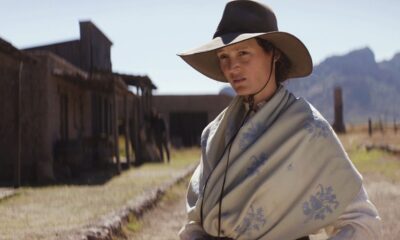

 TIFF 20238 months ago
TIFF 20238 months agoViggo Mortensen in The Dead Don’t Hurt @TIFF2023
-



 ACTORS/ACTRESSES3 months ago
ACTORS/ACTRESSES3 months agoAn Exciting Conversation with Sydney Sweeney @SXSW 2024
-



 ACTORS/ACTRESSES4 months ago
ACTORS/ACTRESSES4 months agoThe Exciting 96th Oscar Nominations Announced
-





 SXSW 20242 months ago
SXSW 20242 months agoStormy Ripping Through @SXSW2024
-



 Uncategorized9 months ago
Uncategorized9 months agoWillem Dafoe in Gonzo Girl @TIFF 2023
-



 TIFF 20239 months ago
TIFF 20239 months agoNicolas Cage in Dream Scenario @TIFF 2023
-



 Uncategorized9 months ago
Uncategorized9 months agoSly to close TIFF2023


